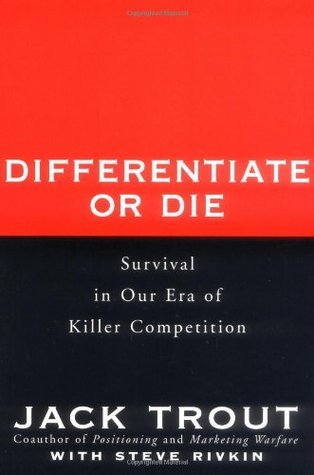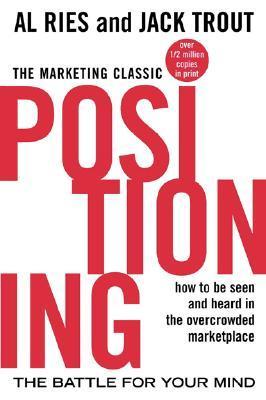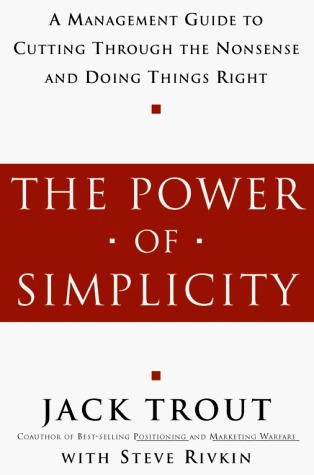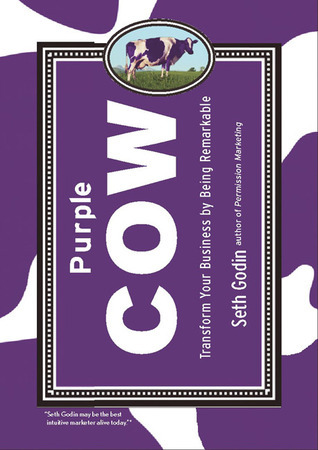
Differentiate or Die: Survival in Our Era of Killer Competition
Book Description
In a world where competitors are lurking at every turn, standing still means becoming invisible. Jack Trout delivers a masterclass in the relentless pursuit of market relevance with "Differentiate or Die." This gripping guide reveals the razor-sharp strategies that can elevate a brand from forgettable to unforgettable. Through captivating examples and powerful insights, Trout unveils the art of differentiation as the ultimate weapon in today’s cutthroat business landscape. As the stakes rise and choices narrow, one question looms: will your brand rise to the challenge or fade into obscurity?
Quick Book Summary
"Differentiate or Die" by Jack Trout is a hard-hitting business guide that dismantles the myth of universal appeal and lays out the necessity of true differentiation for organizational survival. Trout asserts that in an overcrowded marketplace, simply being good is not enough; companies must carve out a unique and memorable space in customers’ minds. Through sharp analysis and real-world case studies, Trout demonstrates how brands that fail to differentiate inevitably become invisible or obsolete. He explores the psychological underpinnings of why customers choose one product over another and warns against the traps of me-too marketing. The book is a wake-up call for businesses to focus relentlessly on what makes them unique, reinforcing that differentiation is not just a strategy, but the only way to secure lasting relevance and growth.
Summary of Key Ideas
Table of Contents
The Necessity of Differentiation in Modern Markets
Trout begins by outlining the high-stakes reality of today's business world, where competition is fiercer than ever and customers have more options at their fingertips. He argues that complacency is dangerous: brands that fail to distinguish themselves risk fading into irrelevance. Trout highlights the phenomenon of commoditization, where products increasingly resemble one another, making differentiation the essential driver of customer attention and loyalty. Brands must work harder to communicate what makes them different and memorable.
Avoiding the Trap of Me-Too Marketing
Trout attacks the allure of so-called universal appeal by demonstrating how "me-too" marketing leads to mediocrity and invisibility. He offers case studies of iconic brands that fell into this trap, losing their distinctiveness and, ultimately, their market share. Instead of blending in, Trout urges managers to resist the temptation to imitate competitors and instead focus on singular, defining characteristics that resonate with their target market. Real differentiation requires courage, discipline, and a commitment to standing out.
Finding and Communicating Unique Value
Central to Trout’s approach is the concept of unique value. Using examples from various industries, he demonstrates how winning brands discover or create attributes—be it a tangible feature, customer experience, or emotional connection—that set them apart. Trout advises businesses to look beyond superficial features and uncover elements that are deeply embedded in their product or service offering. Once identified, this unique value proposition should become the anchor point for all branding and communications.
Psychological Drivers Behind Customer Choice
A key strength of the book is its examination of consumer psychology. Trout explains that decisions are made not just on logic, but on perceptions and emotions shaped by differentiation. He delves into how mental shortcuts and brand associations drive purchasing behavior and shares strategies for embedding a brand's unique difference in the minds of customers. This section emphasizes the need for clear, consistent messaging that is easily recalled and firmly connected with the brand's identity.
Sustaining Differentiation Over Time
Finally, Trout cautions that securing differentiation is only the beginning; sustaining it is an ongoing challenge. Competitive advantages are temporary in dynamic markets, and copycats abound. The final sections offer guidance on evolving the differentiated position, reinforcing it internally, and maintaining vigilance against complacency. Trout reminds readers that differentiation should be part of an enduring business philosophy, continuously refreshed as markets and consumer preferences shift, ensuring long-term relevance and profitability.
Download This Summary
Get a free PDF of this summary instantly — no email required.





